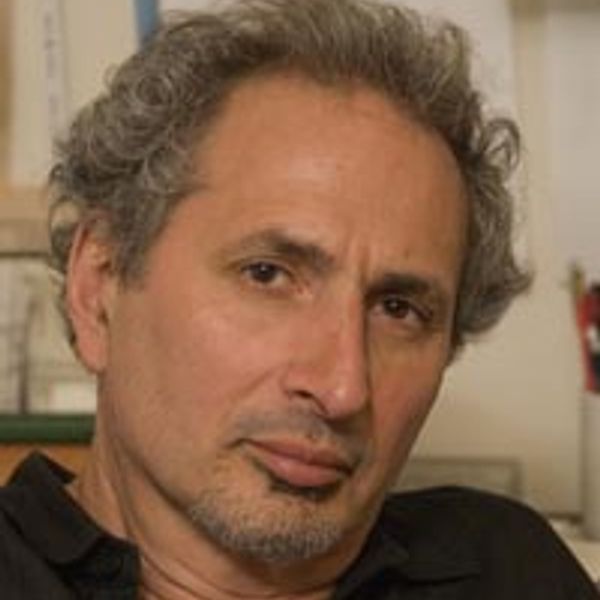Lia Purpura, Parasol Mushroom (detail), featured in AGNI 102
Physicians
Above school kids in Episcopal
jackets cherubs are singing
to the beautiful fake lapis
of St. John the Divine
and from this side chapel
I see through the blue
to the 6th floor of St. Luke’s
where my father’s heart caved in.
In the thirties my grandfather
made his rounds three floors down.
In the weak sun the black rocks
by a shepherd’s robe seem piled
like fat medical texts
or small suitcases full of Dickens
in German, my grandfather translated
to learn English so he could pass
his exam in the Empire state,
to use his silver instruments
on the eyes ears nose and throat.
In a snapshot he’s large-eyed, glazed,
as if he should’ve followed
his cousin, the Archbishop, to a cave.
Instead he climbed down
the catastrophes of New World
faces, the warped shapes
that flare up the senses.
Tubes lit in the throat.
The auscultated fog
of the ear tuned
to pass the pitches
of the world. I think of him
scoping the cochlea,
that purgatory
where the screech
of a yellow Checker
and the mute twittering
of Satchmo’s horn
were white light.
Down the ducts of joy and pain,
my grandfather called tears,
(not lachrymae Christi),
but the fissure between two continents
that sent him with Armenia’s
refugees along the junked canals,
the Dardanelles, the Atlantic.
Eye to eye with a lens,
he could see the retina’s
orange spot,
and it was a floating nation.
On a clean metal table
the empty whites stared back,
like marbles flickering
in Turkish moonlight.
The piles of Armenian corpses
he tended in Adana he carried
in the tremor of his hand.
A dark plane slicing Zurburan’s pears.
The ripe light in the bell-end
of Cezanne’s pear strokes,
the honey-colored vials
weighing down a tree of life.
My father pointed these out in museums.
But in that pear-shaped organ
from which the raucous parrots flew,
in that fruit of blood
soaking in the vaults of the chest,
my father worked.
If you could loose your love to flow
down there in the eddies that swell and shrink
against the barnacled and moss-spun bulkheads
you would see the contradictions
in the oscillations of the unstillable red sea.
Amidst envelopes of membranes
venous trunks and a splay
of filaments which wire a pump to the head,
my father could be a man of adamant
tying his terror in a Windsor knot,
pressing it to the icy starch of his shirt.
I could tell on certain days he’d felt
the inward suck,
the vortex where men and women disappear.
In the final seconds, he’d say
“the heart’s a bag of worms,
then it’s all calm,”
and slipped into his formal chair
distant as blue light;
asked for salt and bread
and water without ice.

Peter Balakian
Peter Balakian is the author of nine books of poems—including New York Trilogy (University of Chicago Press, forthcoming); No Sign (University of Chicago Press, 2022); Ozone Journal (Chicago, 2015), which won the Pulitzer Prize; and Ziggurat (Chicago, 2010), a collection that deals with the aftermath of 9/11—and four books of prose, including Vise and Shadow: Selected Essays on the Lyric Imagination, Poetry, Art and Culture (Chicago, 2015) and the memoir Black Dog of Fate (Basic Books, 1997), which won the PEN/Albrand Prize. Among his other books are June-tree: New and Selected Poems 1974–2000, and The Burning Tigris: The Armenian Genocide and America’s Response, which won the 2005 Raphael Lemkin Prize. He teaches creative writing at Colgate University. (updated 10/2025)
The Pulitzer-winning collection Ozone Journal contains two poems first published in AGNI, “Near the Border” and “Slum Drummers.” The long title poem is a sequel to “A-Train / Ziggurat / Elegy,” which was first excerpted in AGNI before appearing in his earlier collection Ziggurat.
Read Ani Kazarian’s review of Balakian’s collection Vise and Shadow: Essays on the Lyric Imagination, Poetry, Art, and Culture.
